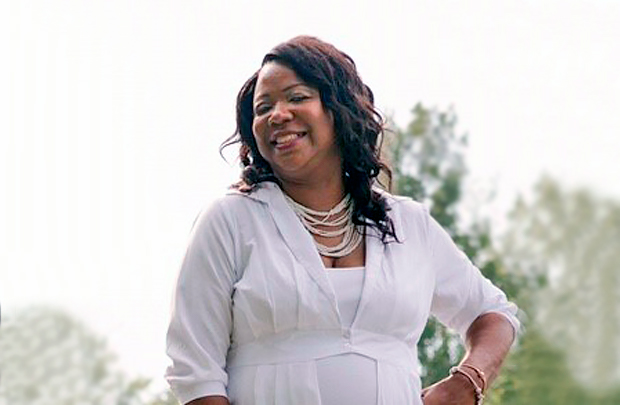
Torjia Ashford is a child protective services worker in Lamar County, Mississippi. A mother she works with suggested that we feature her as an Outstanding Caseworker, writing:
“Torjia works for the very best outcome for the children and helps the parents along the way… We have seen her advocate specifically for our kiddos’ rights at daycare, in therapy, in surgery, in court, and even with a housing issue. Torjia not only does her routine checks, but she takes time to develop a relationship with the children. Our two-year-old has even named her baby dolls after Torjia! As foster parents, we would be absolutely lost without her….”
What does your job entail?
My job is a little bit of everything. Children are assigned to me when they first come into custody. I help their birth parents work toward reunification, support their foster parents, and advocate for the services the children need. Sometimes, like in the case of this family, I work with families all the way through to adoption. Right now I am working with about 14 families. Of course, that number could change tomorrow!
This was my first job out of college, and now I’m going on 12 years with the agency as a frontline worker—which is the hard stuff! Call me crazy, but I love it!
What do you love about your work?
I love trying to help birth parents better themselves. I believe that support and encouragement are the two best things you can give someone. When parents see that I’m there to help, it motivates them. And that motivates me to do even more!
And, as the mother who wrote to you pointed out, I love working with children. I want to protect all of them. They didn’t ask to be in this situation, but here they are. If I could take every child home with me, I would. I have an empty nest now, it’s just me and my husband. Of course, I like to joke that having a husband is kind of like having a child.
The mother who wrote to us said even her daughter who “is afraid of everyone” warmed up to you. How do you do it?
I brought that little girl home from the hospital after she was born. Now she’s two years old. How did I win her over? By being myself. I play with her. I talk to her. I hug on her! And I read to her—a lot. When I get to the house, she takes off running and comes back with a book. When I finish reading that one, she gets another one! One day she came up to me and gave me four little kisses. It made my day.
How about the teenagers?
People say teens can be hard to form a relationship with. But the teens I work with respect me. They know that I try to understand what they are going through. In some cases, I am the only person they feel like they can reach out to when they need something. So when they call, I go running!
Isn’t it hard to say goodbye when the case closes?
Like the family who wrote to you, I feel like I become part of their family, and we stay in touch. And I have a lot of people who’ve aged out who keep in contact through Facebook, emails, and phone calls. My phone number hasn’t changed in the last 12 years—and it won’t anytime soon! So people always know how to get in touch with me. And they do.
I have one woman who is now 29 years old. She aged out at 21 and lives in a home for people with mental disabilities. She calls before her birthday and Christmas every year and asks if I’m going to visit and bring candy! And of course I will. She doesn’t have anybody else.
How has COVID affected your work?
A lot! Now we’re able to meet one-on-one, but of course have to be very cautious and follow protocols: wearing masks, using hand sanitizer, social distancing. And trust me, it’s very hard to keep a two-year-old who wants to hug you six feet away!
All of the caseworkers we feature were nominated by their colleagues or families they work with. Do you know a worker who goes above and beyond? Tell us about them!